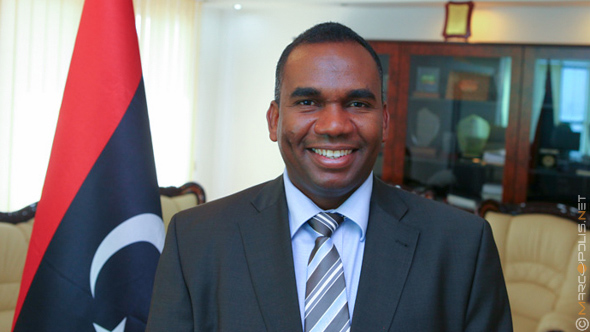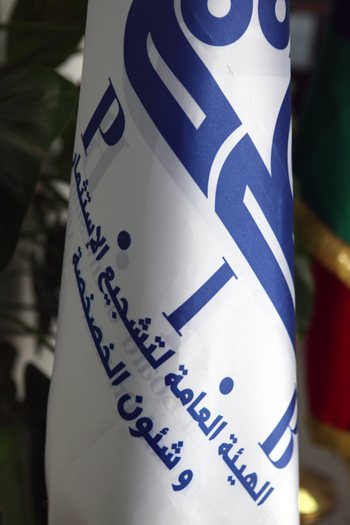Libyan Investments: Latest Analysis of Investments in Libya
Khaled Al Bakory, CEO of Privatization and Investment Board (PIB)
Most of companies from all over the world are concentrating on investments in the oil sector of Libya. However, the country has, according to Al Bakory, other attractive investment opportunities, particularly in the health and transportation sector. The aim of Privatization & Investment Board of Libya has been to attract variety of investment projects, including tourism and transportation.
Interview with Khaled Al Bakory, CEO of Privatization and Investment Board (PIB)

What are the most promising projects investors should look at in Libya? Or which sectors in general should they focus on?
I want to provide you with some information regarding PIB’s role in Libya. After 2012 we started with different investments in Libya – under the article #9 of 2010 law. This particular law facilitates investments but actually that did not exactly take place. Most of companies from all over the world are concentrating on investments in the oil sector. We have other attractive investment opportunities, particularly in the health and transportation sector. My aim has been to attract variety of investment projects, not only oil.
Also, PIB focuses on the tourism sector as in the past there had been many contracts and projects signed but never implemented. So we had established a committee to withdraw these projects if the owners did not want to come back to Libya and implement them. In 2012 we started to demand different project contractors to start/finish the implementation of these project or otherwise they would be taken away from them.
 There are currently 5 projects in the transportation sector ready for investments; we need investors to start them.
There are currently 5 projects in the transportation sector ready for investments; we need investors to start them.
The investment law No. 9 provides a 5 years’ exemption of income tax and custom duties. This does not fit with the agriculture (as it is seasonal) and 5 years is a long time for this kind of investments. So no license have been provided to the agriculture business. Thus we have to amend the law for these kinds of investments and that will be done in October 2013.
What is the outlook for the FDI for 2013 and 2014?
We have a group of projects, we have our goals. We just started the process; we have already organized many conferences while another conference will take place in September. We are new in this job; we need help from international experts. We are soon going to provide an investment map that anyone will be able to reach on our website. We want the investments to generate 12% of Libyan annual budget. We at PIB really hope we can reach this goal.
How much FDI does Libya need?
We are ready to receive investors from every country. Yes, maybe Libya does not have an ideal security situation at the moment. However whatever takes place here is done by criminals; it has nothing to do with the state itself. I think by the year 2015 or 2016, these projects will not be available as they are now. The private sector is going to have the power over these projects.
When we talked to private companies one of the main issues they had or still have has to do with the outstanding payments that the state has not paid them yet. Do you have any solutions for this problem?
You have to distinguish between the state and the private sector. When any foreign company approaches us, PIB as an institution will assist them and have the banks ready to finance them; our work has nothing to do with the government or their contracts. PIB works with the private sector; we are different.
What is your personal strategy and vision for PIB?
We are ready to receive investors from every country. Yes, maybe Libya does not have an ideal security situation at the moment. However whatever takes place here is done by criminals; it has nothing to do with the state itself. I think by the year 2015 or 2016, these projects will not be available as they are now. The private sector is going to have the power over these projects.
My vision is to encourage and support our country by having a variety of projects with different countries. Most of our current projects are done in cooperation with Malta and Turkey; we can of course add other countries to these two. In addition, we need companies which will help us to transfer technology to Libyan citizens. Therefore, most of our contracts with foreign companies are for 25 years, no more than that. We have certain goals to reach and, God willing, we will reach these goals.
Would you like to add anything?
I would like to send a message to all investors to come forward and not to be frightened by the situation in Libya. There are good investment opportunities in Libya and right now is the time to come and grab the chances. By 2016 we will stop; those opportunities for investments will not be available anymore. So I would like to invite the investors to come to Libya. Also, I hope we will have another interview in the future to discuss PIB’s progress.